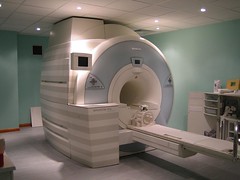 A new study finds that kids who have an autism spectrum disorder are not accessing the language areas of the brain in order to identify behavior that is socially inappropriate. They can recognize the behavior, and understand that it is bad, but lack the language to effectively communicate about it.
A new study finds that kids who have an autism spectrum disorder are not accessing the language areas of the brain in order to identify behavior that is socially inappropriate. They can recognize the behavior, and understand that it is bad, but lack the language to effectively communicate about it.
One of the symptoms of an autism spectrum disorder is that the child has great difficulty with social skills and in appropriately and comfortably navigating through social situations. Typically, the social cues and behaviors that children automatically pick up on as they grow are things that need to be systematically taught to kids who have autism. These new skills must be practiced.
A new study may shed some light into why this is so. Researchers led by Elizabeth J. Carter, Ph.D, at Carnegie Mellon University in Pittsburgh found that children who have autism are not accessing the language areas of the brain when identifying that another child is preforming a bad behavior. The kids in the study who did not have autism were accessing the language areas of the brain in the same situations.
The study involved 12 children who had autism and 13 children who had “typical development”. The researchers used functional magnetic resonance imaging on each child while the child was given a specific set of tasks. Each child was presented with two pictures.
For one set, the child was asked to identify the picture in which the boy in it was being bad. They were asked to identify a social condition. In another set of pictures, the child was asked to identify which picture was outdoors. They were asked to identify a physical condition.
The researchers found that each group could successfully preform the tasks. The difference between the groups showed in the parts of the brain that each was accessing during the tasks. In short, the children who did not have autism were accessing portions of the brain that had to do with language. The children who did have autism were not doing that. They were accessing parts that indicated a reduced social and language network use.
Carter and the researchers concluded:
“These findings support behavioral research indicating that, whereas children with autism may recognize socially inappropriate behavior, they have difficulty using spoken language to explain why it is inappropriate”.
Personally, I cannot help but wonder if this study explains why more than half of all teens who have autism are bullied. How can a child who has autism explain to a teacher, or to his or her parents, that another child is bullying them when the child lacks the connection to the language that would ordinarily be used to describe those behaviors? If you cannot “tell on” the kid who is bullying you, then that kid is likely to continue to do it.
Image by Image Editor on Flickr

